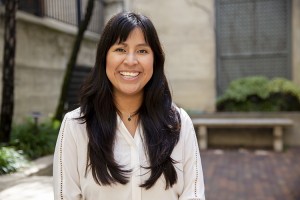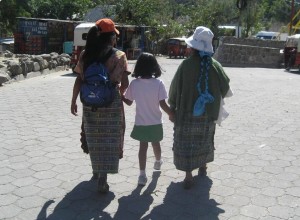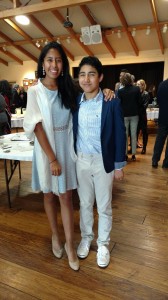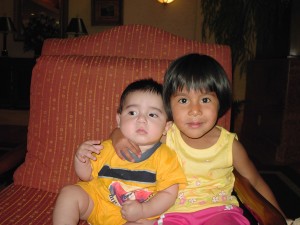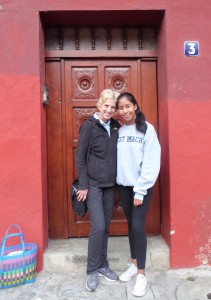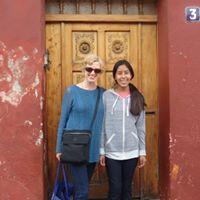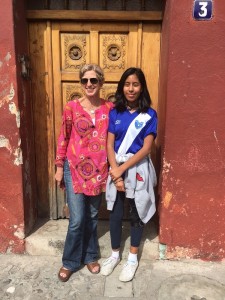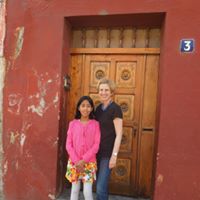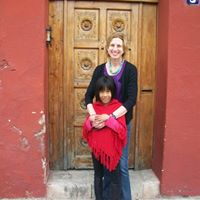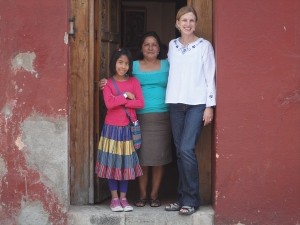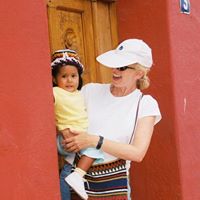Every summer when we visit Antigua, Guatemala, I make Olivia pose with me at the door of the charming little house where we lived together while waiting for her adoption to be finalized, back in 2003. Here we are in August 2019. Mateo snapped the picture. xoxo
Posts Tagged ‘Guatemalan adoption’
Our front door
Friday, August 30th, 2019Adoption as universe
Saturday, August 24th, 2019English and Spanish
Tuesday, July 16th, 2019All around the world, people speak more than one language, but in the U.S., increasingly, speaking Spanish or anything besides English feels like a political act. We live in California, where my Guatemalan-born children frequently are assumed to speak Spanish. My daughter Olivia, who speaks quite well, describes this assumption as “triggering.” The other day, Olivia and I were chatting to each other in English while waiting to make a purchase at Macy’s. The cashier, a bilingual speaker, addressed Olivia directly and asked, “Hablas español?”
Mateo’s Confirmation
Tuesday, March 5th, 2019On Saturday, Mateo received his Confirmation. For his Confirmation name, he chose “Miguel” (as in the Archangel), and for his sponsor, Olivia.
I’m proud of my son for reaching this milestone, and of his sister for guiding him through his faith journey.
Like siblings everywhere, my kids fight. But when it matters, they stand up for each other, and have from the beginning.
Here they are at Confirmation, and meeting for the first time in the lobby of the Guatemala City Marriott (now Barcelo), when Mateo was six months old and Olivia three.
Not only blood makes a family.
xoxo
DNA
Sunday, February 3rd, 2019DNA kits are affordable and easy. Millions of people are taking tests and discovering blood relatives may not be who they were led to believe. We in the adoption community have dealt with family complexity for years, but for many people, the information comes as a shock.
In this Wall Street Journal article by Amy Dockser Marcus, a DNA counselor says, “I have become of the mind-set it is not a matter of if the secrets will come out…It is a matter of when the secrets will come out.”
After meeting her 90-year-old biological father, a woman says, “Every child has the right to know her origins. We missed 65 years together.”
I keep these observations in mind as an adoptive parent.
Finally: At least three families in my adoption circle have found biological siblings and cousins of their children, through DNA kits; the sibs and cousins were also adopted to the United States. The discovery has been amazing for these families: a miracle.
“The Long Up” by Kay Ryan
Sunday, December 30th, 2018I’d never heard of poet Kay Ryan when I picked up a copy of “The New Yorker” and read her poem “The Long Up” while sitting in a waiting room for one of our seemingly never-ending therapy appointments. This was 2011, when Ryan already had been named the sixteenth United States Poet Laureate and awarded the Pulitzer Prize. In those years, I didn’t know of Ryan’s accomplishments, and how could I, when my days and months were consumed with searching for whatever it was that would help peace descend on my house, my family, my kids. I couldn’t dedicate energy or time to anything except placing one foot in front of another to get through another day.
Everyone says teenage years are the hardest, but for us, it was the beginning: those early years when I didn’t understand my children or their internal journeys, so unlike anything I’d ever seen or experienced or heard of.
On that afternoon in the waiting room when I picked up the magazine, Kay Ryan’s simple, vivid lines soared off the page and landed straight in my soul. I dug out my journal from my purse—the journal in which my most constant refrain was a scratched and repeated “I can’t do this!! Help me!!!,” underline, underline—and copied the poem in its entirety. Her words gave me hope.
On the eve of 2019, Ryan’s poem may resonate in your soul, too. I’m with you in spirit. Xoxoxo
“The Long Up”
By Kay Ryan
You can see the
land flattening out
near the top. The
long up you’ve faced
is going to stop.
Your eyes feast
on space instead
of pitch as though
you’d been released.
The measured pace
you’ve kept corrupts
with fifty yards
to do—fifty
times as hard
against the blue.
On being a multiracial family
Tuesday, August 28th, 2018My background is different from David French, as are our reasons for adopting our children. But I agree with much of what he says in this Atlantic article, “America Soured on My Multiracial Family.”
When it comes to my family’s configuration, I don’t seek approval or permission from anyone. I’ve become used to the judgement and, yes, hatred directed at us, largely by strangers who know little to nothing of our story. As French notes, the judgement and hatred comes from all sides, for different reasons. Some believe we as white parents have no right to raise children of color. Others believe foreign-born children (especially foreign-born children of color) have no right to enter the US under any circumstance, including adoption; this faction hates everyone they view as “not American.” Still others believe adoption is wrong, period, and hate us on principle.
This is not a bid for sympathy, just a statement of what is: Our kids are our kids and we are a family. Nothing anyone says will ever change that.
Antigua Front Door 2018
Wednesday, August 15th, 2018
Olivia grows taller while I shrink. Still nice to revisit this memory.
The Antigua house where I lived with Olivia in 2003.
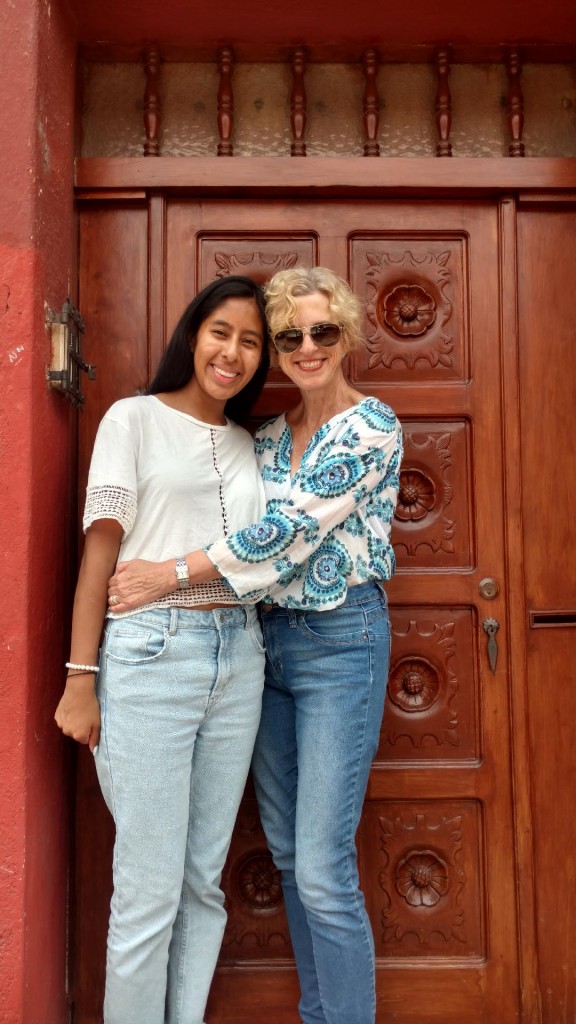
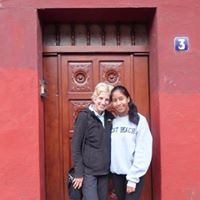
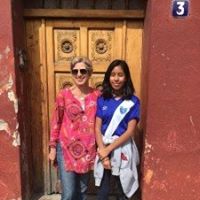
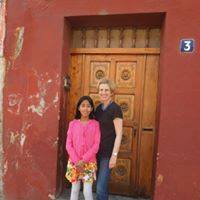
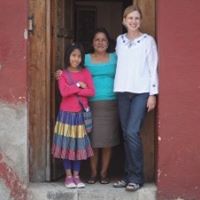
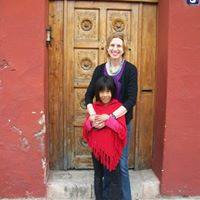
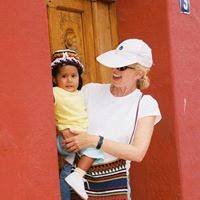



 ShareThis
ShareThis